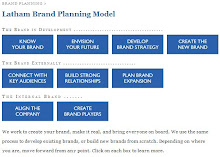It's the biggest topic on the planet.
Just when all of us thought everything had been invented -- thanks to the grip that Facebook, MySpace, and YouTube have on our imaginations and the hours we spend online -- well, out of the blue, comes Twitter.
More billionaires in the making, you say. All power to them. We agree.
Flickr is out there, too. Don't forget Flickr. Flickr is extraordinarily beautiful and engaging.
As we consider this new media environment, we cannot escape the fact that the social media sector is under attack.
Once pure, it's now a greed target.
It's being increasingly defined-redefined-and-perhaps-even-unnecessarily-complicated by consultants, advisors, media companies, online firms, public relations consultants, publicists, talent agencies, and virtually everyone else under the sun, all of whom are telling you it was invented for marketing.
Fine.
But it wasn't really invented for marketing. It was invented for people.
Actually, it happened, just like everything else that has happened online, because it could happen. It could be done. It was cool. So let's do it, innovators said.
And the rest of us said, that's brilliant. And we did it.
But if we take a pause in the proceedings, we may find time to make two observations:
(1) Social media has been around a long time, relatively speaking. Copying the known world on your emails is a kind of social media; primitive, but real, and you've been doing it for a long time. Participating on an online discussion forum with the rest of your Avatar-disguised Best Friends is solid social media, and it's been happening for years. Instant Messaging on AOL kicked off social media for an entire generation, fouled up the family computer desktop, and introduced a billion kids to what the computer was actually there to do.
There's no mystery about any of that. It's how we live now.
And now that social media has been classified, named, adopted, and increasingly co-opted by marketing organizations, spokespeople and their advisors, a powerful question remains:
(2) Do you really want marketing intruding on all those places where you -- launch your opinions -- post anonymously -- talk with your friends -- catch up -- look at their pictures -- post140 -- and so on?
Absolutely not.
Critics say the rush to capitalize on social media has all the hallmarks of whatever once had to do with, well, creating dot-com businesses for any kind of wild idea under the sun, credit default swaps, and political fund raising campaigns. We don't agree. That's harsh.
We do believe, however, that 'social media' ain't magic, ain't mysterious, and frankly, it ain't new. It's something all of us have been doing, in one way or another for years, and we will keep on doing it, again, for years.
All of us love it, and we love what we do.
In fact, after everyone thought writing was dead and television and the telephone had destroyed the written word, suddenly all of us became writers (once again), and we discovered that some of us are extraordinarily good writers and some of us are extraordinarily funny. (Cynics among us say the rest just use profanity.)
Nevertheless, for a marketer, figuring out social media remains a challenge.
We say, there's no challenge in remembering that marketing, fundamentally, is about (i) connecting with people, (ii) building a relationship with them, and (iii) expanding that relationship over time.
In today's world, more than any other time in the planet's history, our online world makes communicating and relationship building (i) easy, (ii) affordable, and (iii) relatively and potentially productive.
Even if people don't personally buy what you are saying, or what you are selling, at least they can become advocates who love you and share your good news with their friends.
We don't like the term, 'social media'. We prefer the term, 'social marketing', and we don't even like that much.
So use Twitter, if you have a reason (or a celebrity on board). Use Flickr, which is truly one of the most under-utilized resources for marketers. And by all means, use Facebook, MySpace, LinkedIn, Plaxo, and all the rest of it.
But also, please, consider your own power, your own resources, and your own creativity.
Think about creating something fabulous for your friends, customers, prospects and influencers that is immeasurably more satisfying than any of the ideas above. Then use it to enlarge your world and expand your influence.
After all, it's the inventors and innovators who flourish in this world. They always have. They will continue to do so.
So be an inventor. Be an innovator. Invent your future.
Thursday, May 14, 2009
Subscribe to:
Posts (Atom)


